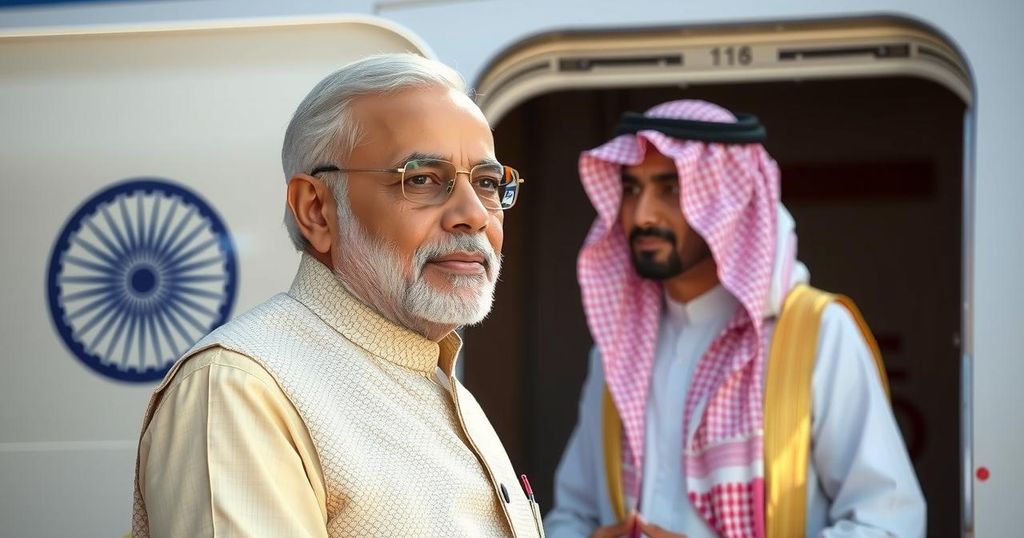Prime Minister Narendra Modi is on a two-day visit to Kuwait, the first by an Indian Prime Minister in 43 years, invited by Sheikh Meshal Al-Ahmad Al-Jaber Al-Sabah. Modi intends to strengthen bilateral ties, discussing peace, security, and cooperation, while also engaging with the Indian diaspora. His visit occurs amidst recent regional political changes and aims to establish a roadmap for future partnerships between India and Kuwait.
On a significant diplomatic mission, Prime Minister Narendra Modi has commenced a two-day visit to Kuwait, marking the first visit by an Indian Prime Minister in 43 years. Invited by Sheikh Meshal Al-Ahmad Al-Jaber Al-Sabah, the Amir of Kuwait, Modi received a cordial reception from senior officials of the Gulf state. He underscored the historical ties between India and Kuwait, emphasizing shared commitments to peace, security, and stability in the West Asia region, which have evolved over generations.
Modi’s visit occurs in the context of regional political shifts, notably following the recent instability in Syria and ongoing tensions between Israel and Hamas. The Prime Minister expressed optimism that his discussions with Kuwaiti leadership would foster future collaboration between the two nations. Notably, he aims to engage with the prominent Indian diaspora in Kuwait, whose contributions have significantly bolstered bilateral relations.
During his visit, Modi is scheduled to meet with key Kuwaiti figures including the Emir, the Crown Prince, and the Prime Minister. Additionally, he will visit an Indian labor camp and partake in the inaugurational ceremony of the Gulf Cup football tournament. These engagements are intended to solidify partnerships, with ongoing discussions regarding a bilateral investment treaty and a potential defense cooperation agreement.
Prime Minister Modi’s visit to Kuwait is significant for several reasons. Firstly, it marks the first visit by an Indian Prime Minister to Kuwait since 1981, highlighting a renewed focus on Indo-Kuwait relations after decades of limited high-level interactions. The visit comes at a time of regional upheaval, with political changes in Syria and tensions in Gaza potentially affecting the stability of West Asia. Modi’s proactive engagement indicates India’s intention to strengthen ties with Gulf nations and the Indian diaspora, which plays a crucial role in the economies of these countries. This visit is also economically strategic, as Kuwait holds substantial energy and investment ties with India, making the possibility of future collaborations in areas such as trade and defense particularly relevant.
In conclusion, Prime Minister Narendra Modi’s historic visit to Kuwait serves to reinforce and expand the longstanding ties between India and the Gulf state. With a focus on fostering future partnerships and exploring collaborative agreements, his engagement with Kuwaiti leadership and the Indian diaspora reflects a strategic diplomatic approach aimed at enhancing regional stability and mutual prosperity. The outcomes of this visit may pave the way for fruitful economic and defense initiatives beneficial for both nations and the broader West Asia region.
Original Source: www.hindustantimes.com






